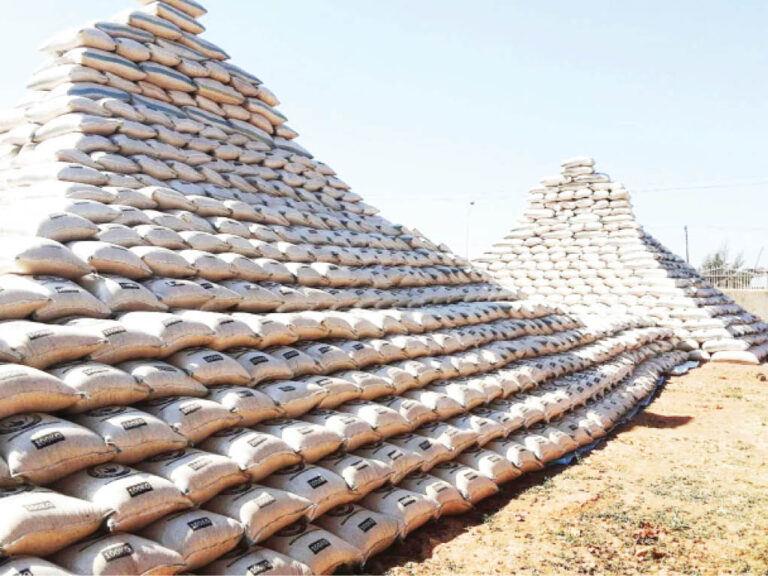For many years, experts have been critical of the Nigeria Strategic Grain Reserve system, pointing out the risk of having an empty or lean reserve.
Since COVID-19, which had a negative impact on numerous economic and agricultural activities, closed international borders, and what many referred to as a “weak grain reserve system,” the amount of food available has decreased, driving up food prices.
The Minister of Agriculture and Food Security, Senator Abubakar Kyari, during a recent briefing at the Joint Senate Committee on the State of the Economy, told senators why importation was considered and the question about the country’s grain reserve concerns raised by many stakeholders.
“I know that a lot of senators have raised concerns about the issue of importation; and I think there are also concerns out there. We are also worried about that. We try to protect the local industry and farmers, but at the same time, we are in an emergency situation.
“I think that just like somebody who is sinking, if your hand him a sword he would grab it, just to come out. This is the situation we found ourselves now. But it is an interim situation and not something that will be protracted over a period of time,” he said.
The minister said prices would drop significantly if the country intensified production effort in dry and wet seasons, adding that the current problem is not about hoarding but speculations.
“I wouldn’t want to say there is hoarding, but there are speculators in the industry. I am sure they will start bringing out their grains to the market. And even when some of these imports start coming, there should be some kind of activity that would lessen the prices of food,” Sen Kyari said.
“On the issue of food reserve, I think a question was asked: Are the grains available? I will say yes, the ones we are about to release are available,” Sen Kyari said.
Nigeria has 33 silos with a total capacity of 1.3 million metric tonnes for its Strategic Grain Reserve (SGR) system. However, about 19 of these silos were concessioned to the private sector for a number of years.
The ministry has not given details of what is available in the national strategic grains reserve silos, describing it as a national security issue.
Last week, the president after so much pressure from Nigerians and legislators, announced the release of some grains to cushion the effect of rising food prices.
On Wednesday, the minister announced the release of 42,000 metric tonnes of grain from the national reserve as approved by President Bola Ahmed Tinubu, adding that this was a significant step towards addressing the current hardship of food shortage and inflation in the country.
However, he did not give a breakdown of the details of these grains to be released, whether maize, millet, sorghum, wheat or rice, and from which silos.
Senator Kyari said, “The release of these grains will help to increase the supply of food in the market, which will lead to a decrease in prices. This will provide relief to Nigerian families who have been struggling to afford basic necessities.”
Related posts
Categories
- Advertisements (1)
- Agriculture (45)
- Breaking News (26)
- Business (598)
- Crime (987)
- Education (319)
- Entertainment (128)
- Features (13)
- For The Records (43)
- Foreign News (1,186)
- Health (219)
- Home News (332)
- Interview (9)
- Judiciary (348)
- Lifestyle (140)
- Local News (111)
- National News (1,447)
- Opinion (26)
- Politics (1,004)
- Religion (157)
- Science and Technology (125)
- Security (680)
- Sports (878)
- States' News (815)
- Transportation (327)
- Uncategorized (10)

